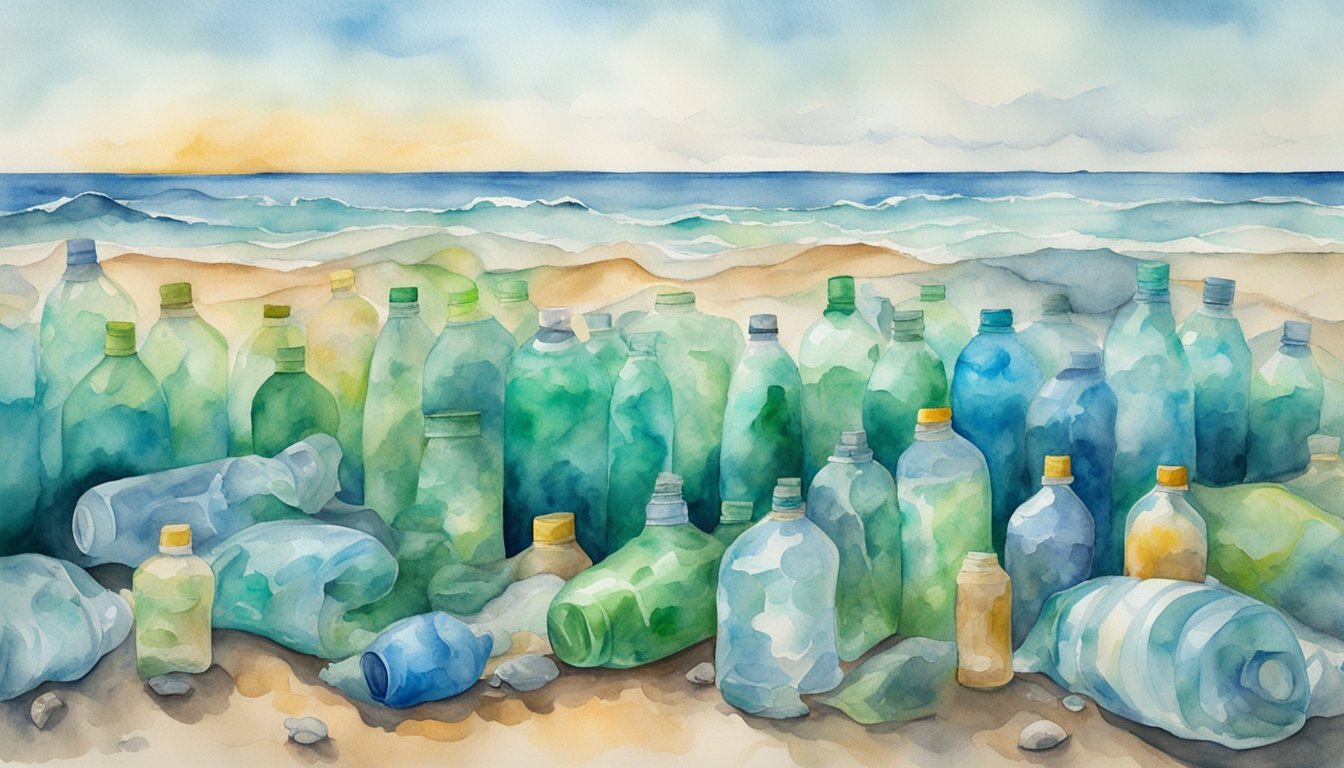Ocean Health Challenges
Climate Change Effects
The health of our oceans is greatly impacted by climate change. Rising global temperatures are causing the ocean to become warmer, leading to a series of negative consequences, such as coral bleaching and ocean acidification. As the ocean absorbs more carbon dioxide from the atmosphere, it becomes more acidic. This process, known as ocean acidification, can have detrimental effects on marine life, such as the weakening of shells for some organisms and the disruption of the food chain.
Coral bleaching is another significant issue resulting from climate change. As ocean temperatures rise, coral reefs expel the algae living within their tissues, which results in a loss of both color and essential nutrients. These changes make the corals more susceptible to disease and may eventually lead to their death, causing a negative impact on the marine biodiversity that relies on coral reefs as a habitat and source of food.
Pollution Impact
Another significant challenge facing our oceans is the increasing amount of pollution. Over 80% of ocean pollution comes from land-based sources, including runoff, rivers, atmospheric deposition, and direct discharges. The majority of this pollution is concentrated in the coastal regions of low- and middle-income countries. This pollution not only harms marine ecosystems but also poses a threat to human health.
Marine pollution consists of various harmful substances, such as plastics, heavy metals, and chemicals, which can enter marine food chains and contaminate the fish that humans consume. Additionally, pollution contributes to the loss of marine biodiversity, as vital habitats are destroyed, and toxic substances harm marine animals.
Overfishing and Biodiversity Threats
Overfishing poses yet another significant challenge to the health of our oceans. For numerous marine species, such as tuna and sharks, overfishing has led to a decline in their populations, threatening their survival and the balance of marine ecosystems. This issue not only affects fish populations but also the entire marine food web and, as a result, marine biodiversity. Moreover, overfishing can lead to a loss of crucial species responsible for maintaining the ocean’s overall health.
To address the challenges facing our oceans, it is crucial not only to raise awareness of these issues but also to promote sustainable practices that help maintain its biodiversity and overall health.
Conservation and Sustainability Efforts

Restoration and Protection Initiatives
One of the key strategies in preserving our ocean ecosystem is the implementation of restoration and protection initiatives, such as the establishment of marine protected areas (MPAs). Well-managed marine protected areas play a crucial role in maintaining biodiversity and fighting the climate crisis. In 2022, world leaders at the United Nations Ocean Conference pledged to intensify action towards saving the oceans from threats, including marine pollution, harmful fishing practices, and acidification.
Innovative Solutions to Reduce Waste
Another crucial aspect of ocean conservation is the minimization of waste, specifically plastic waste. Plastic pollution contributes significantly to the marine litter issue, which exacerbates dead zones and major garbage patches like the Great Pacific Garbage Patch. Several innovative solutions, such as computer modeling, have emerged to help tackle this issue. Computer modeling techniques are now being used to forecast and track plastic debris in the ocean to better understand their movement and inform cleanup efforts.
Moreover, promoting recycling practices within communities has demonstrated a positive impact on reducing plastic waste. A focus on sustainable development also extends to other areas, such as sustainable tourism and aquaculture.
Community Engagement and Education
Educating the general public on the importance of ocean science and conservation is a crucial step in helping to protect the marine environment. Youth engagement and involvement are particularly important, as they can become the future change-makers in addressing marine environment issues.
Organizations such as the United Nations Environment Programme (UNEP) actively promote education and awareness campaigns to highlight the ocean’s role as a carbon sink and the urgent need for action against greenhouse gas emissions and the use of harmful additives in the form of fertilizers and pesticides.

